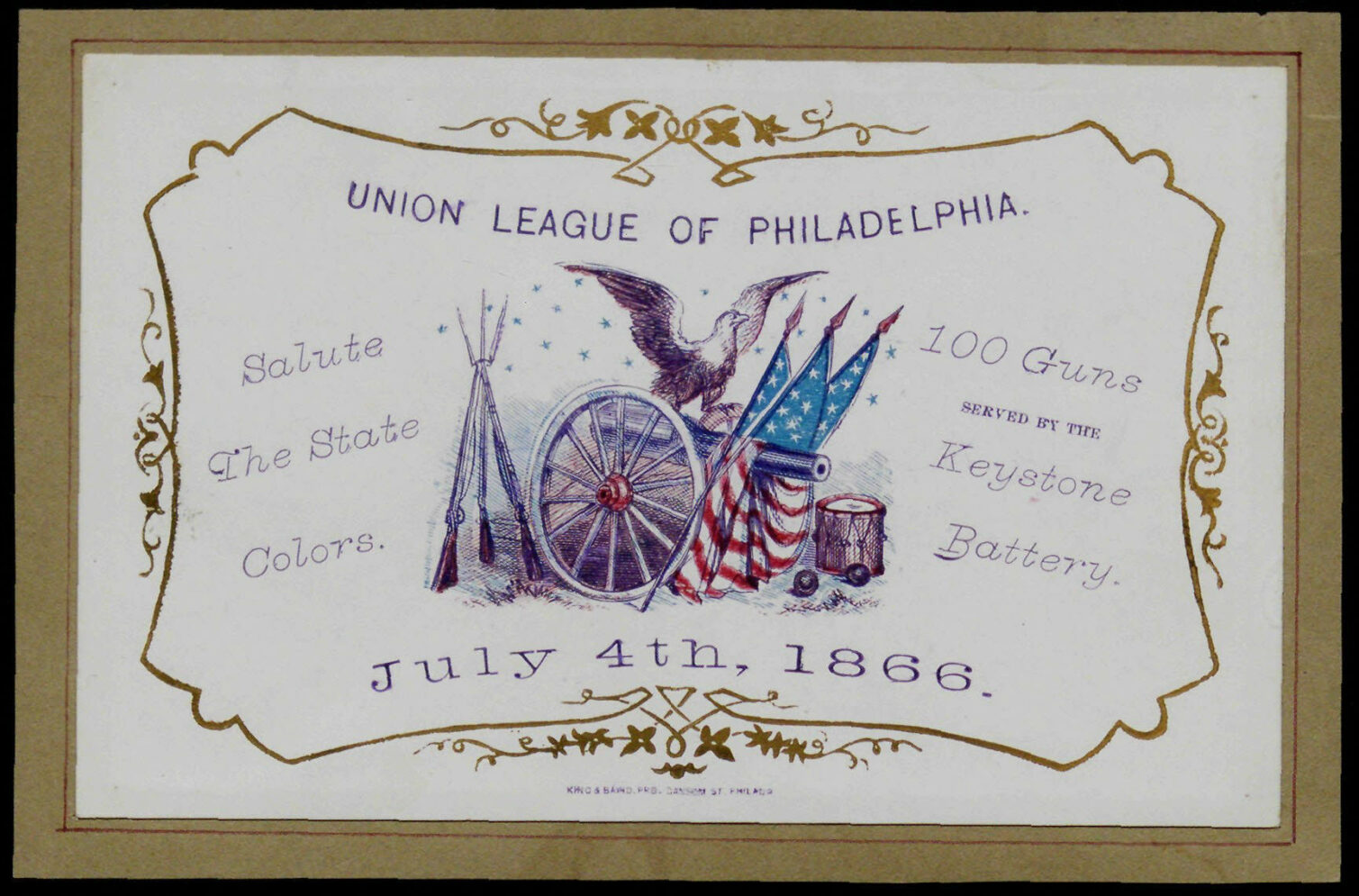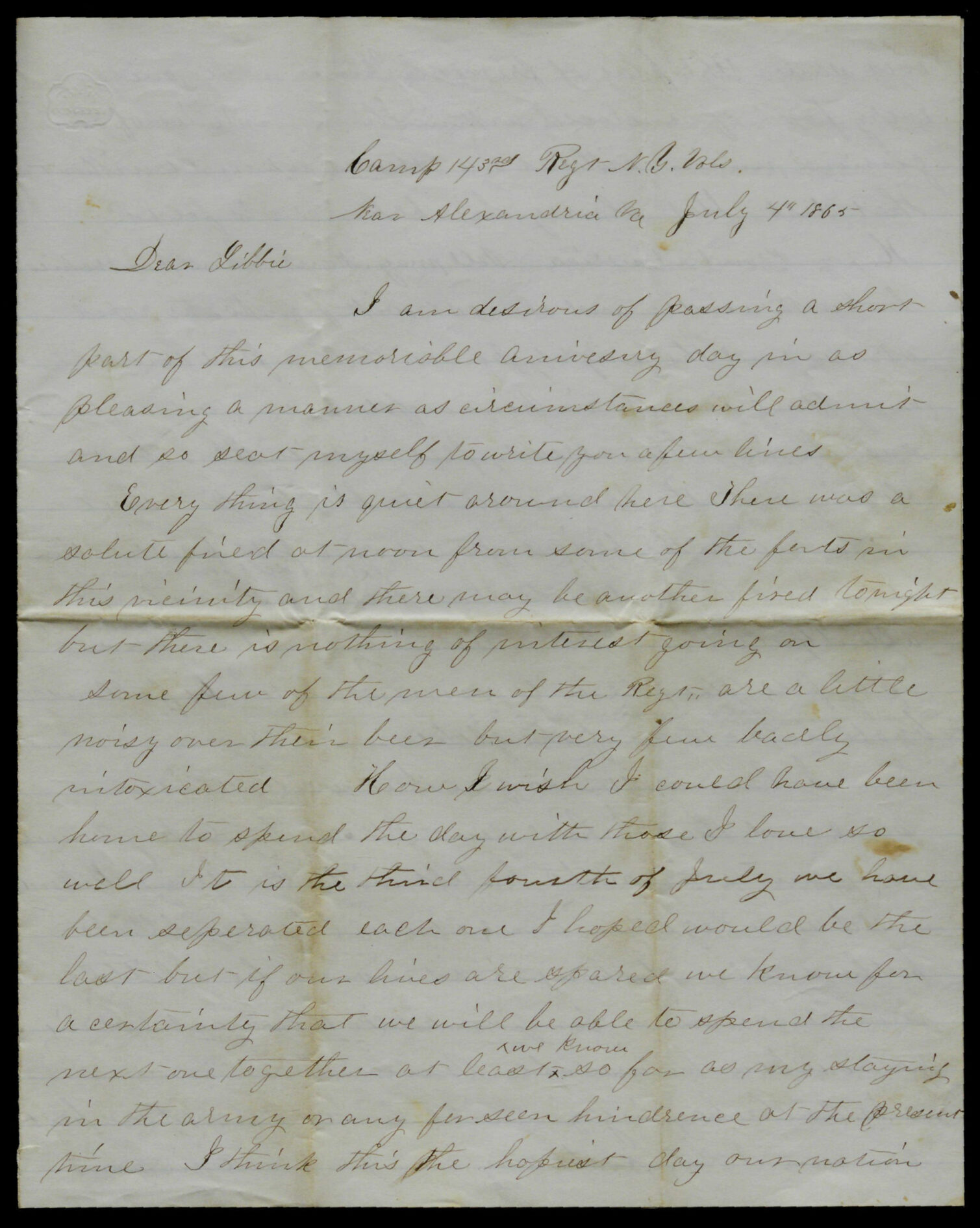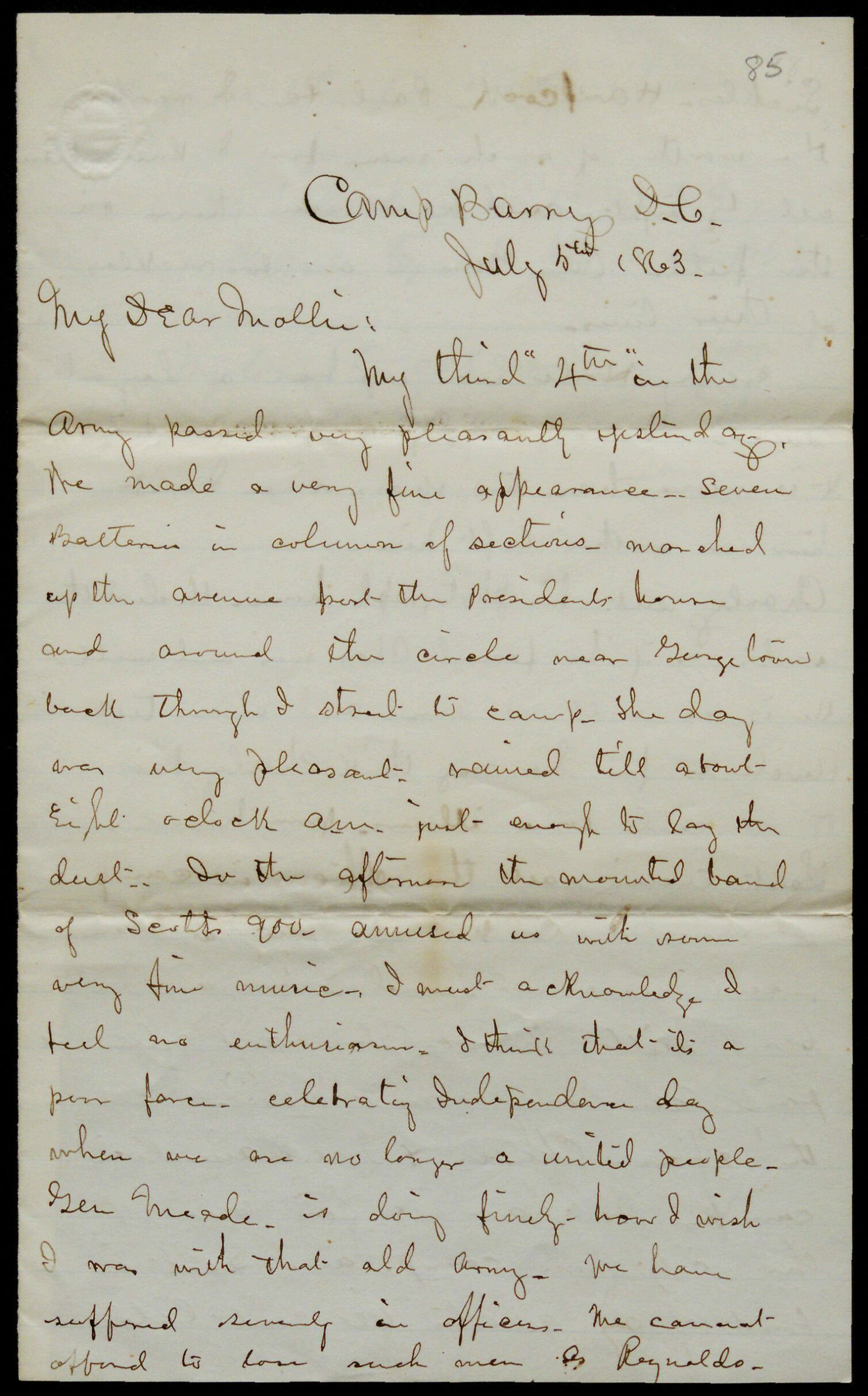From Sea to Shining Sea
On the eve of the Fourth of July and as the smell of fireworks and hot-dogs creeps across the United States, those of us lucky enough to have worked on American History 1493-1945 are swept along with the Independence Day spirit. The federal holiday is one of the most significant in the US calendar, competing only with Thanksgiving for the top-spot of cultural significance. Traditionally celebrated with parades, fireworks and parties the essence has not changed since the first anniversary celebration in 1777.

Image © The Gilder Lehrman Institute of American History. Further reproduction prohibited without permission.
Among the enormous collection of correspondence from Civil War soldiers are references to how the Fourth of July was celebrated during the conflict. There is an 1865 letter from Bruce Elmore to his wife, Libbie, describing a relatively quiet Fourth of July [GLC06588.228]. There’s been a salute fired at noon which may be repeated in the evening and although some festivity is presumably attempted the most notable thing to happen is that some men are “a little noisy over their beer but very few badly intoxicated”. Elmore longs to spend the next Fourth of July with his wife and seems full of passion and hope for America. He talks about the “flag of freedom” flying over the union without “that dark blot slavery hid behind its folds”. He goes on with considerable rhetoric to invite “Monarch and Monarchies [to] look with wonder and almost fear” at the power of a free people. Elmore certainly embodies everything that the Fourth of July celebrates.

Image © The Gilder Lehrman Institute of American History. Further reproduction prohibited without permission.
A letter from two years earlier, from Orville S. Dewey to his sister, has a different tone [GLC02161.085]. Dewey is stationed at Camp Barry in Washington D.C. so has prime access to a major celebration. He writes “Seven Batteries in columns of sections marched up the avenue past the President’s house” and that “In the afternoon the mounted band … amused us with some very fine music”. But Dewey moves on to say “I must acknowledge I feel no enthusiasm. I think it’s a poor farce celebrating Independence day when we are no longer a united people”.

Image © The Gilder Lehrman Institute of American History. Further reproduction prohibited without permission.
For both Elmore and Dewey it is the unity of the nation (and individuals) that makes the Fourth of July a celebration. As we fire up the BBQs we wish a very happy and united Independence Day to all those celebrating. Now, where are the hot-dogs?
The complete American History 1493-1945 collection from the Gilder Lehrman Institute is available now. Full access restricted to authenticated academic institutions who have purchased a licence.
Recent posts

Discover how the Mass Observation Project evolved through the 2010s. Explore societal trends, from climate change to digital shifts, revealed through module IV. Read how researchers and the public document everyday life in a changing world.

This blog spotlights Foreign Office, Consulate and Legation Files, China: Section II's material which documents China's relations with Britain, and key events such as the beginning of the Xinhai Revolution that ended centuries of imperial rule. It features correspondence between London and British diplomats stationed in Weihaiwei, the first foreign concession in China.
